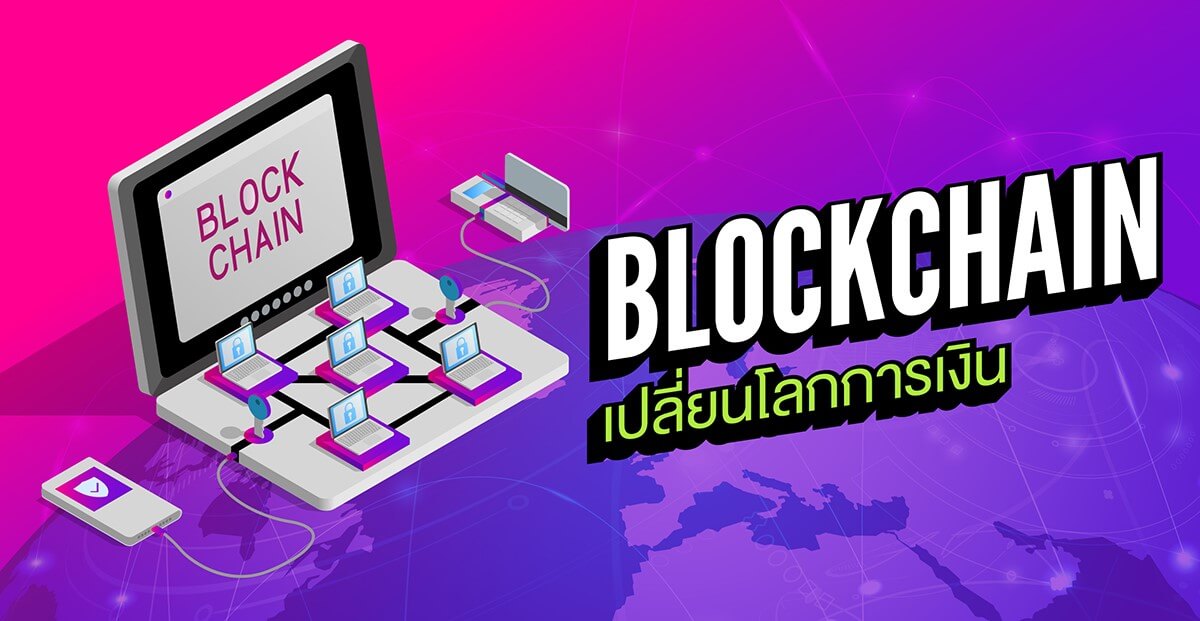บล็อคเชนถือเป็นหนึ่งในโปรโตคอล (protocol) ขั้นพื้นฐาน ซึ่งโปรโตคอลเป็นคำศัพท์ทางเทคนิคหมายถึง ภาษามาตรฐานที่ช่วยให้ผู้คนจำนวนมากบนอินเทอร์เน็ตทำงานร่วมกันในการแก้ไขปัญหาแบบเฉพาะได้ ตัวอย่างของโปรโตคอลอินเทอร์เน็ตที่ได้รับความนิยมและนำมาใช้เป็นระยะเวลานาน ได้แก่ โปรโตคอลที่กำหนดวิธีการส่งข้อมูลไปบนเว็บ (HTTP) โปรโตคอลแอพ อีเมลที่ใช้สำหรับการส่งและรับอีเมล (SMTP) โปรโตคอลของเบราเซอร์สำหรับการถ่ายโอนข้อมูลที่ปลอดภัยหรือก็คือแม่กุญแจสีเขียวขนาดเล็กที่เบราเซอร์เมื่อชำระเงินด้วยบัตรเครดิต (SSL)

Everybody is talking about blockchain, but they might wonder what blockchain is. Put simply, blockchain is a new technology which has been invented to solve the problem of incomplete connections which cannot be done with current Internet technology.
Originally devised for digital money, blockchain tears down the walls of cash transfer, enabling sender and receiver to make direct transfers and record their data without the need of any intermediary.
How blockchain works
Blockchain technology is a format of digital data storage in the form of a chain linking everybody in the network. Everybody knows to whom money belongs and sees everybody else’s transaction records. Everybody in the chain has to approve changes to the data, so it is jointly verified, with no need for an intermediary. This is different from the current conventional system which requires a trusted party to record your data.
The traditional system with a trusted intermediary has created many problems for financial systems as the intermediaries are rivals in business, so data cannot be shared among them. This results in consumers having to bear the expensive costs of financial data storage by an intermediary.
Another matter is the fee issue in which rates have been charged differently by every financial institution, and if it is an international transaction, even more of a headache because of different legal systems, it is impossible for clients to predict how much they have to pay. Even so, the payments industry is dominated by a few key players such as Visa, MasterCard, PayPal and Swift. Digital infrastructure systems are monopolised by a few companies. Also, most of the software is closed-sources. The arrival of blockchain will help break this monopoly. Future payments will be as easy as connecting to the Internet today.
The financial system of the future
Blockchain can record entire digital data as we can transfer money in the digital system with all the data code in the same language. In the future, each user wishing to make a transaction will have a security key to change data. Changes are visible to all of the network community so there cannot be fraud.
At that point, banks, financial institutions and lawyers are at the most risk since their services will be replaced by the blockchain. The survivors will be those who can adjust in time and find income from management or IT services. Consumers will fully benefit from a future financial system that’s quick, convenient and cheap.
Banks should adapt quickly to the new ecosystem, such as creating technology and applications directly for consumers and will collect income from IT services. Competition in the new ecosystem will bring maximum fairness and benefits for users.
Reference: Forbes Thailand and www.NBTC.go.th
